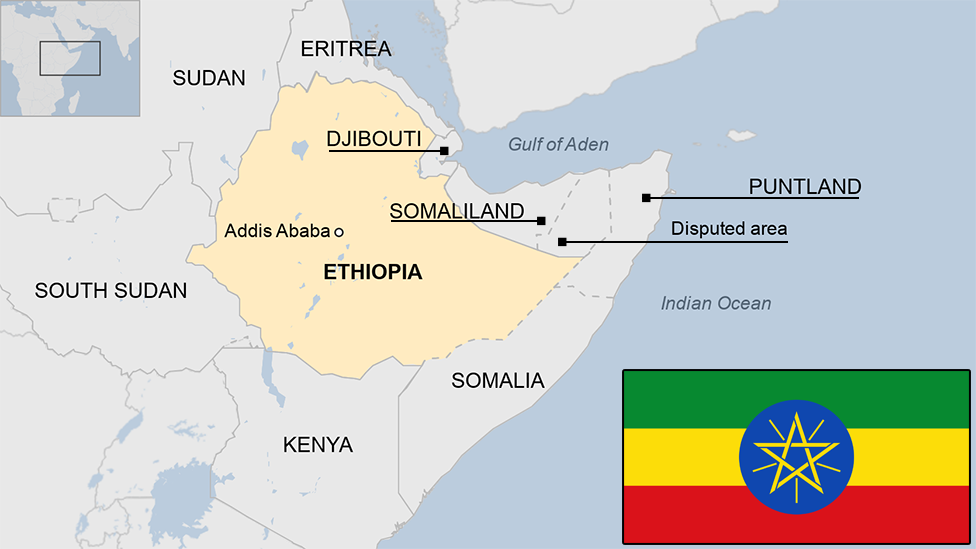Ethiopia's Tigray conflict: MSF 'witnessed soldiers killing civilians'
- Published
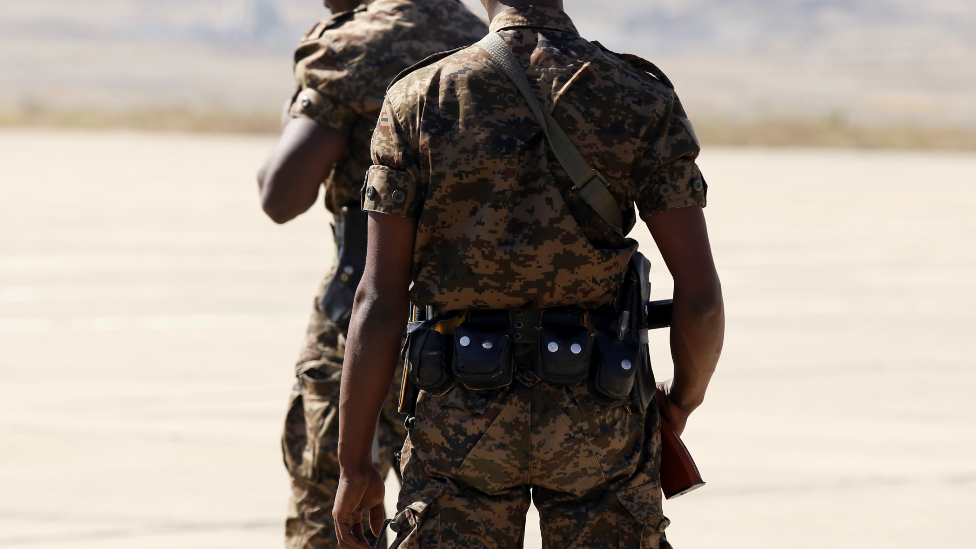
Ethiopia's PM says soldiers will be held accountable for atrocities
Médecins Sans Frontières (MSF) staff say they witnessed the extrajudicial killing of four civilians by Ethiopian soldiers in Tigray earlier this week.
An MSF team and two public minibuses were stopped by soldiers in the aftermath of an apparent ambush on an army convoy on a main road on Tuesday.
The passengers had to leave the buses; the four men were separated from women and shot, MSF says.
Officials say the medical aid charity's allegations will be investigated.
"No person, including serving soldiers, is above the law," Ethiopia's embassy in London told the BBC.
The conflict in northern Ethiopia erupted in November when the government launched an offensive to oust the region's ruling party from power after its fighters captured federal military bases in Tigray.
The Tigray People's Liberation Front (TPLF) had had a massive fall-out with Prime Minister Abiy Ahmed over the future of Ethiopia's ethnically based federal system and its role in government.
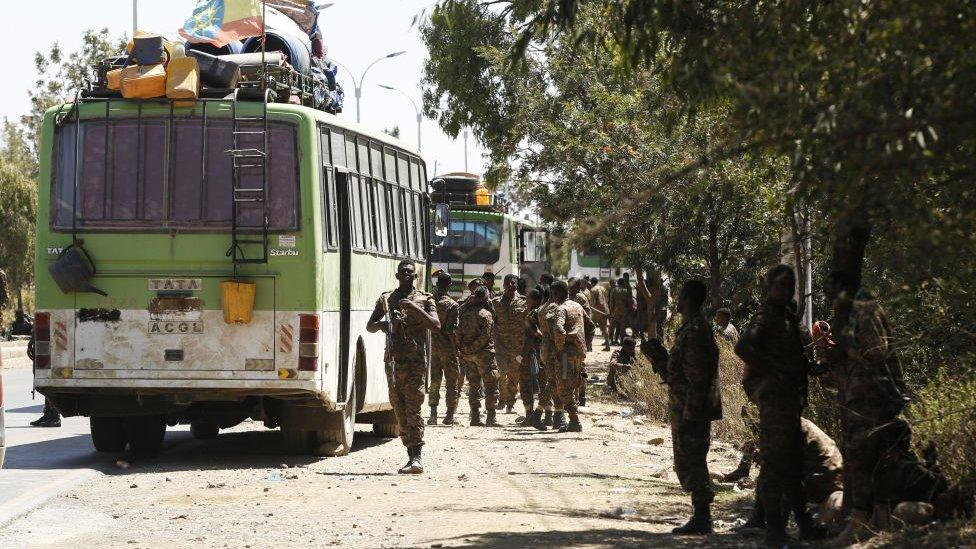
Security is tight in Mekelle with soldiers patrolling
Mr Abiy declared that the conflict was over at the end of November, but fighting is continuing in parts of the region, with reports that thousands of people have been killed and hundreds of thousands forced from their homes.
"We are horrified by the continued violence in Tigray," MSF said in a statement about the killings its team had witnessed.
"This horrific event further underscores the need for the protection of civilians during this ongoing conflict, and for armed groups to respect the delivery of humanitarian assistance, including medical aid."
What did the MSF staff see?
The killings took place on the road between the regional capital, Mekelle, and the city of Adigrat, MSF says.
Its three staff members were travelling in a clearly marked MSF vehicle when they encountered military vehicles that were on fire.


It appeared to be the aftermath of an ambush of a military convoy by an armed group.
The MSF vehicle was stopped, along with the two buses whose passengers were ordered to disembark.
The women were allowed to walk away and shortly after at least four men were shot. Their bodies could be seen on the side of the road, the charity says.
The MSF team was allowed to leave, but was then stopped again by soldiers who pulled out their driver, beat him with the back of a gun and threatened to kill him.
"Our teams are still reeling from witnessing the senseless loss of lives from this latest attack," MSF said, saying their staff were eventually able to return to Mekelle.
How are aid agencies operating in Tigray?
With difficulty. Access to Tigray has been severely limited - and there were repeated calls for access to be granted to the UN and other aid agencies.
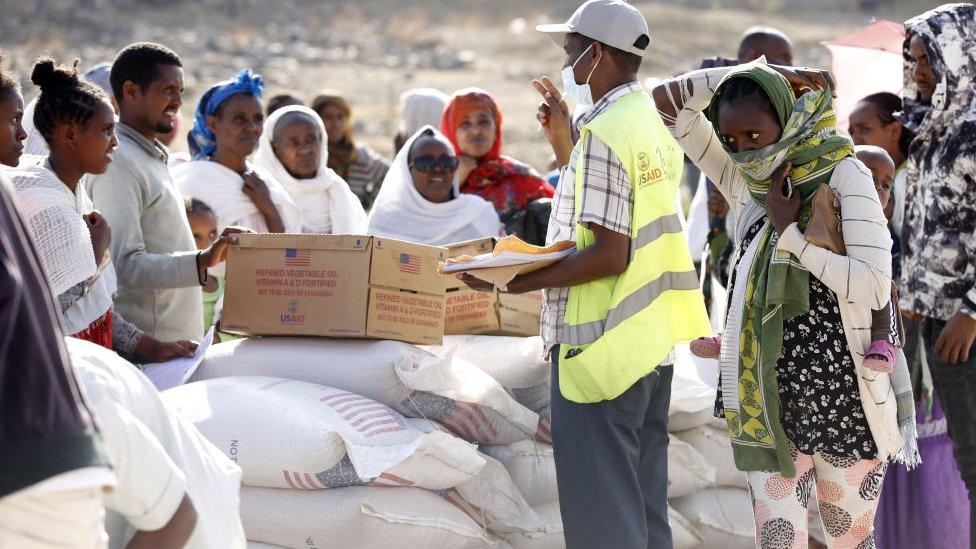
USAid food supplies were distributed earlier in March in Mekelle to the thousands who have fled their homes
This was allowed earlier this month, when the government said they could operate there at their own risk.
The prime minster has since accused foreign countries and aid organisations of doing nothing to help, despite being given "unfettered access".
"The people of Tigray eat wheat but not concerns through Twitter messages," Mr Abiy told parliament on Tuesday.
Tigray crisis: Why Sudan is a ‘second home’ to Ethiopian refugees
"They asked for unfettered access, but when we said ok and allowed access, it is what you see now. The people need practical assistance."
The government itself had opened more than 92 aid distribution centres to feed more than 4.2 million people, he said.
Are the atrocities being investigated?
Mr Abiy has promised to bring to account soldiers found to have committed crimes.
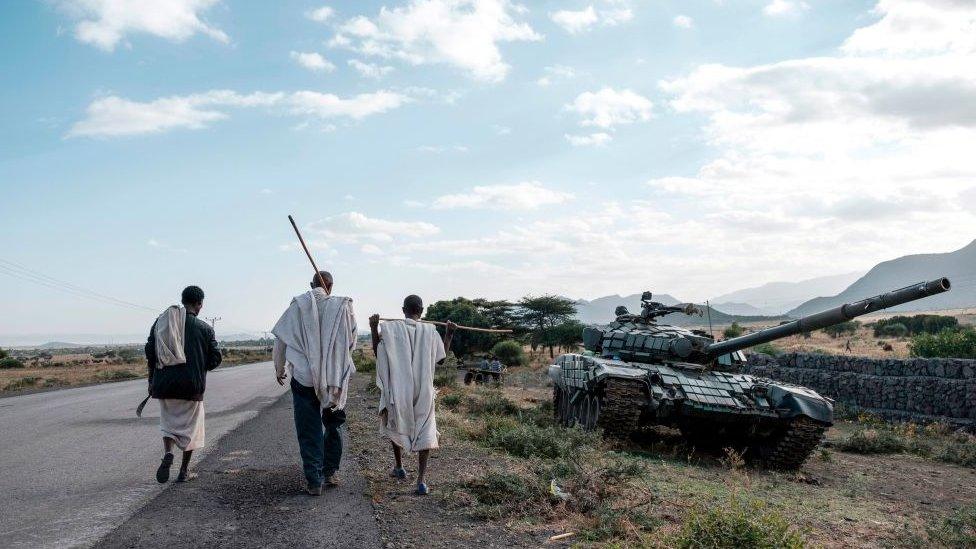
The fighting has reportedly killed thousands of people and displaced hundreds of thousands
The conflict not only involves the military and regional fighters, but has also drawn in troops from neighbouring Eritrea as well as other militias.
All have been accused of human rights abuses.

More about the conflict in Tigray:

Last week, the UN said it would work with the state-linked Ethiopian Human Rights Commission to investigate reports of the indiscriminate killing of civilians and widespread sexual abuse.
The US has described the violence in Tigray as ethnic cleansing.
Related topics
- Published6 December 2020
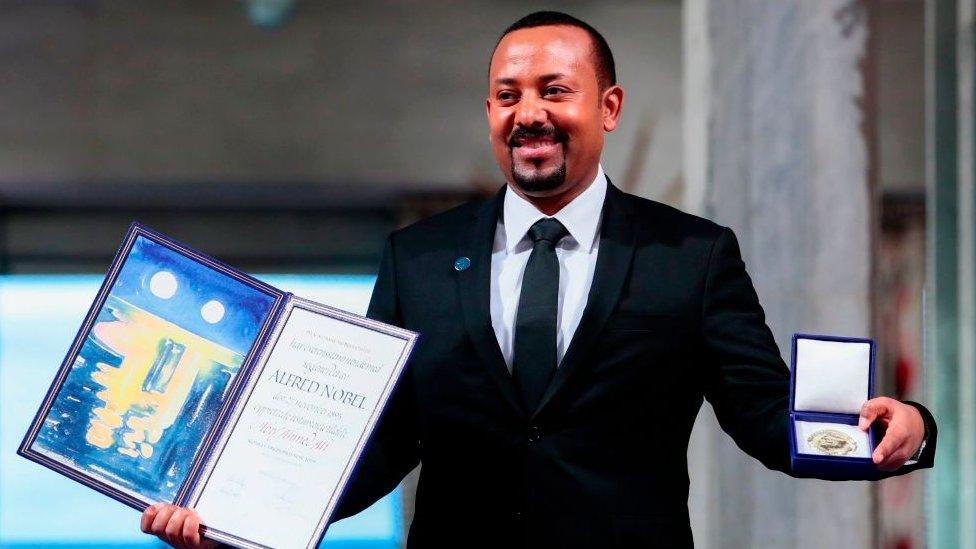
- Published2 January 2024
